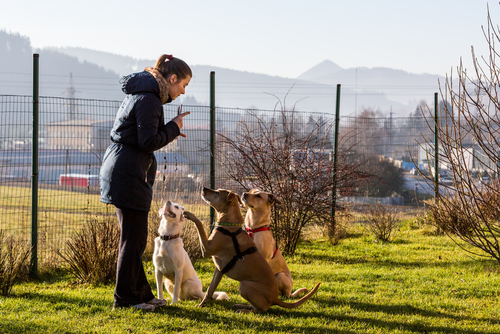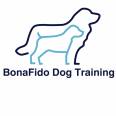I do not have words to describe how wonderful Sharon is with training the dogs. I was about to give my pitbull/boerboels away or put them to sleep but Sharon stopped me. She assest both dogs and there is absolute nothing wrong with them. Luna was the first one to...
Best dog trainers in Cape Town International Airport, Western Cape
Top dog trainers near you
Browse the best dog training experts and compare ratings and reviews.
Hire the best dog training specialist
Search Uptasker for the best dog training specialists
How can a dog trainer help me?
When it comes to the choice between dogs and cats as domestic pets, it appears that dogs are slowly beginning to outnumber cats as the most popular choice. Dogs, on the whole, are more demonstrative in their affections, play more easily with owners of all ages, are obedient at taking commands and instructions and offer a far higher level of protection towards their owners. Children, in particular, love having their own dogs to play with, and learn so much about the responsibilities of owning animals by caring for their own pets from a young age. Who can doubt the bonds that develop when puppies and children are allowed to grow up together? However, with that being said, the majority of dogs do need to be taught how to behave in certain situations in order for them to become a valued and integral part of family life. Whilst much of this training can be accomplished fairly easily at home by their owners, there are times when more professional dog trainers need to step in to instil proper behaviour or to try and correct bad habits which are beyond the owner’s capabilities.
When is the ideal time to begin training?
A professional dog trainer is experienced at behaviour modification and obedience training in dogs to adhere to socially acceptable behaviour in a variety of situations, as well as listening to and obeying commands from their owners. The most common initial commands are : “Sit”, “Heel”, “Down”, “Stay” and “Leave it”. The best time to start such training is from puppyhood, within the first three months of life, when new behaviours are easily learned and accepted mainly because, at this stage, curiosity overweighs fear. At this time, puppies can be taught to accept walking with a lead, and should be exposed to as many new people, places and other animals as possible. If puppies are played with on a regular basis, they should naturally become accustomed to being touched anywhere on their bodies, without fear or aggression. This will make it easier over time for the dogs to accept strangers such as veterinarians and visitors to the home examining or caressing them without fear, apprehension or distrust.
My dog is well-behaved. Why does he need training?
Although dogs are pack members by nature, most dogs are sociable animals, and fit in fairly easily with the restrictions of family life, but obedience training will teach them what is required of them and which behaviours are unacceptable.
We have to accept that there are some dogs who simply will not accept other dogs and retaliate in their presence with aggression or fear. Whether this behaviour stems from previous traumatic experiences or is simply a part of their temperament, it is both dangerous and undesirable. Experienced and skilled dog trainers can hopefully eradicate these sorts of behaviours through a carefully planned and empathetic training approach. A reputable dog trainer will never use punishment as a means of training. No animal will respond positively to those who try to train through beatings or other physical violence, food or other deprivation, shouting and other forms of punishment, and this approach is almost guaranteed to further aggravate poor behaviour. Training should be an enjoyable experience for both owners and their dogs, as well as a means of forging a closer bond between them. Training plays an essential part in keeping both owners and dogs safe in different situations, where loud noises, traffic, fireworks and large crowds could easily frighten untrained dogs into trying to find a quick escape. A well-trained dog will respond to his owner’s instructions and stay close and calmer at such times. Dog trainers are also highly active in training dogs for specialised roles such as search and rescue, hunting, law enforcement, protection and detection and working with livestock.
How to find the right dog trainer for your needs
Check their online ratings and customer reviews
The internet is becoming a more widely used tool for professional dog trainers to advertise their services, as well as to showcase their previous successes through their websites. Finding these professionals is much quicker and more convenient if you use a search site such as Uptasker which lists in geographical areas, as well as providing online ratings and customer reviews. It is so much more comforting to read live reviews from people who have actually used the supplier you may be interested in. If you want to follow through on a supplier’s listing, Uptasker provides one-click links to their websites, if available. You can also source dog trainers through dog and pet publications and magazines, pet stores, veterinary consulting rooms, adverts in the Yellow Pages and newspapers, and through flyers which often offer specials for a specific period. If you have friends who have used the services of a dog trainer, by all means speak to them and see who they recommend. Word of mouth recommendation is always a reliable method of finding reliable and trustworthy professional services.
Top dog trainer tips

Your dog is, more often than not, an integral and much loved member of the family, and it follows that you will want to use a trainer who is known for reliable, effective and empathetic training methods which will not cause any emotional trauma - to either you or your dog or puppy. The best training comes from carefully-planned programs which are fun, practical, rewarding and which strengthen the bond between owner and dog. For more tips, see our dog trainer articles.
Read Dog Training articles




